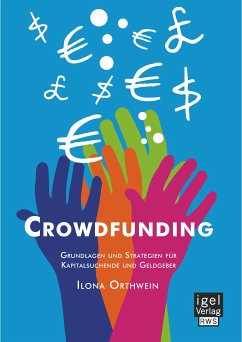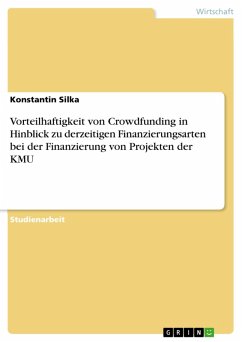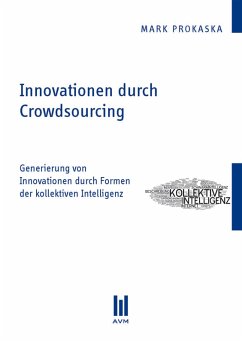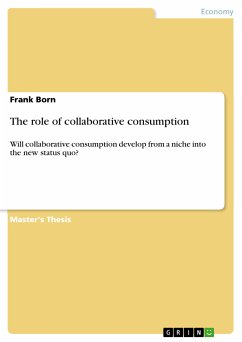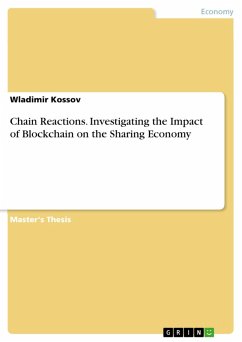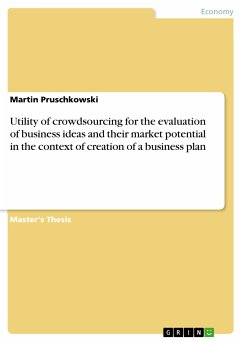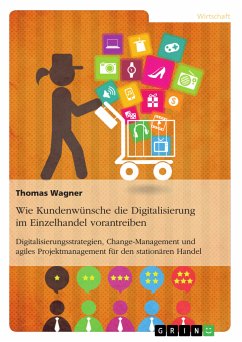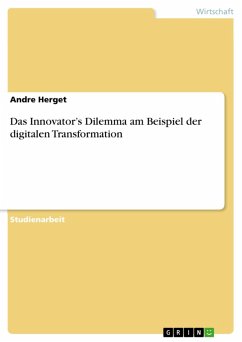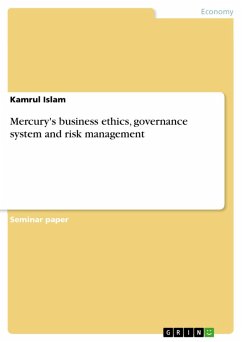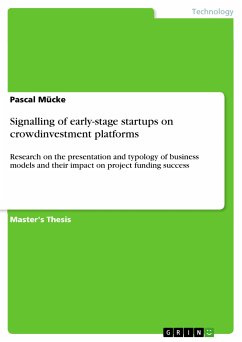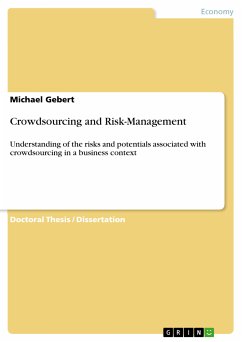
Crowdsourcing and Risk-Management (eBook, PDF)
Understanding of the risks and potentials associated with crowdsourcing in a business context
Versandkostenfrei!
Sofort per Download lieferbar
Statt: 52,95 €**
39,99 €
inkl. MwSt. und vom Verlag festgesetzt.
**Preis der gedruckten Ausgabe (Broschiertes Buch)
Alle Infos zum eBook verschenkenWeitere Ausgaben:

PAYBACK Punkte
0 °P sammeln!
Doctoral Thesis / Dissertation from the year 2014 in the subject Business economics - Miscellaneous, grade: 1,3, Prifysgol Cymru University of Wales (Innovation & economic research center - University of South Wales), language: English, abstract: The business world has become globally competitive. Innovation is less frequently undertaken in-house, in a closed and integrated way but transformed more into an open call where many actors are involved in the different steps of the innovation process. It is therefore, imperative for organizations to gain competitive advantage by adopting new technol...
Doctoral Thesis / Dissertation from the year 2014 in the subject Business economics - Miscellaneous, grade: 1,3, Prifysgol Cymru University of Wales (Innovation & economic research center - University of South Wales), language: English, abstract: The business world has become globally competitive. Innovation is less frequently undertaken in-house, in a closed and integrated way but transformed more into an open call where many actors are involved in the different steps of the innovation process. It is therefore, imperative for organizations to gain competitive advantage by adopting new technologies to apply in company operations. Crowdsourcing Innovation encourages companies in their effort to re-evaluate as well as re-design business processes and diversify a greater task to a heterogeneous group of people for a common goal. The principal objective of this thesis is to identify crowdsourced innovation models and examine the usage in a business context in order to evaluate and establish methods of managing crowdsourcing innovation risks in organizations. The increased potential of crowdsourcing as a tool for business development and innovation has prompted extensive research into this crucial field by academia. This thesis is an added endeavour to crowdsourcing investigative studies and makes a significant contribution to literature as well as commercial practice. In an effort to outline the research objectives, the research questions seek to provide an understanding of the risks associated with crowdsourcing, the potential of the concept to improve business practices and possible strategies that can be used to manage the identified risks. An initial investigation of the extant literature traced the growth and development of crowdsourcing since its inception and revealed that the concept is marred with criticism and controversy such as economic constraints, social ramifications and ethical implications. An additional objective of the literature review was to critically scrutinise the assessment of crowdsourcing to enrich companies with near infinite problem solving capacities, its ability to pay for solutions, not failures and most importantly, to solve problems possibly faster and with reduced cost of operations. To enable the development of a conceptual risk-framework the thesis gives a detailed analysis of risk management, while defining fundamental aspects of risk regulations. The study encompassed a qualitative collective survey methodology, which was applied in form of a prepared online questionnaire template to a systematic random sample.
Dieser Download kann aus rechtlichen Gründen nur mit Rechnungsadresse in A, B, BG, CY, CZ, D, DK, EW, E, FIN, F, GR, HR, H, IRL, I, LT, L, LR, M, NL, PL, P, R, S, SLO, SK ausgeliefert werden.




